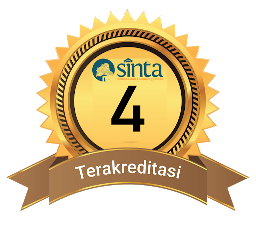Analisis Keterampilan Berpikir Kritis Kimia Siswa Kelas XI Berdasarkan Pelaksanaan Kurikulum Merdeka Belajar
DOI:
10.29303/cep.v7i2.6759Published:
2024-12-04Issue:
Vol. 7 No. 2 (2024): Edisi NovemberKeywords:
critical thinking, chemistry, independent learning curriculumArticles
Downloads
How to Cite
Abstract
Critical thinking skills are very necessary in solving problems in chemistry in the form of theories, concepts, laws and facts. Chemistry lessons not only develop knowledge, understanding and analytical skills but also need to develop students' critical thinking abilities. The aim of this research is to describe the chemistry critical thinking skills of class XI students at SMA Negeri 1 Gunungsari based on the implementation of the independent learning curriculum. This research is quantitative research using descriptive methods. The research results show that the students' critical thinking skills scores are in the high category with a percentage of 80.2%. Dominantly, the critical thinking skills obtained by class XI IPA A students are in the sufficient category with a percentage of 77.9% and the critical thinking skills obtained by class XI IPA B students are in the very high category with a percentage of 82.1%. Likewise, the percentage value of critical thinking skills indicators obtained by class XI IPA A students is lower than class XI IPA B students but is still in the high category.
References
Arsanti, M., Zulaeha, I., & Subiyantoro, S. (2021, December). Tuntutan kompetensi 4C abad 21 dalam pendidikan di perguruan tinggi untuk menghadapi era society 5.0. In Prosiding Seminar Nasional Pascasarjana (Vol. 4, No. 1, pp. 319-324).
Fauzi, A. (2022). Implementasi Kurikulum Merdeka di Sekolah Penggerak (Studi Kasus pada SMAN 1 Pengaron Kabupaten Banjar). Jurnal Pahlawan, 18(2): 18-22.
Haerunata. H., Amayliadevi, R., & Widiarta, H. (2020). Analisis Keterampilan Berpikir Kritis pada Indikator Memberikan Penjelasan Lebih Lanjut Materi Hidrokarbon. J-PEK (Jurnal Pembelajaran Kimia), 5(1):47-58.
Jhonson, E.B. (2009). Contextual Teaching and Learning. Bandung: Mizan Learning Centre (MLC).
Kumar, R. R., & James, R. (2015). Evaluation of Critical Thingking in Higher Education in Oman. International Journal of Higher Education, 4(3): 33-43.
Kurniawan, N.A., Saputra, R., Aiman, U., Alfaiz, A., & Sari, D.K. (2020). Urgensi Pendidikan Berpikir Kritis Era Merdeka Belajar Bagi Peserta Didik. Jurnal Ilmu Pendidikan, 16(1): 104-109.
Mastiah, S., Nurlaili, N., & Muflihah, M. (2018). Analisis Kemampuan Berpikir Kritis Siswa melalui Model Pembelajaran Advance Organizer pada Materi Larutan Elektrolit dan Nonelektrolit. Bivalen: Chemical Studies Journal, 1(2): 101-105.
Maure, F. S., Arifin, A., & Datuk, A. (2021). Peran Musyawarah Guru Mata Pelajaran (MGMP) dalam Meningkatkan Profesionalisme Guru Sosiologi di Kota Kupang. Jurnal Ilmu Pendidikan (JIP) STKIP Kusuma Negara, 12(2): 111-118.
Muntari., Haris, M., Sukib., & Yanti, E. 2019. Pengaruh Model Pembelajaran Penemuan Terbimbing (Guided Discovery) terhadap Kemampuan Berpikir Kritis dan Hasil Belajar Kimia Siswa Kelas X SMAN 4 Mataram. Jurnal Ilmiah Profesi Pendidikan, 4(2): 100-105.
Muti’ah., Andayani, Y., Anwar, Y. A.S., Al Idrus, S. W., & Junaidi, E. 2022. Penerapan Model Praktikum Terintegrasi Problem Based Learning (PTPBL) untuk Meningkatkan Kualitas Pelaksanaan Praktikum Pemisahan Analitik. Jurnal Ilmiah Profesi Pendidikan, 7(4): 2360-2369.
Nugraha, T. S. (2022). Kurikulum Merdeka untuk Pemulihan Krisis Pembelajaran. Inovasi Kurikulum, 19(2): 251-262.
Panginan, V. R., & Susianti. (2022). Pengaruh Penerapan Kurikulum Merdeka Belajar terhadap Hasil Belajar Matematika Ditinjau dari Perbandingan Penerapan Kurikulum 2013. Jurnal PGSD Universitas Lamappapoleonro, 1(1): 9-16.
Purwati, R., Hobri, H., & Fatahillah, A. (2016). Analisis Kemampuan Berpikir Kritis Siswa dalam Menyelesaikan Masalah Persamaan Kuadrat pada Pembelajaran Model Creative Problem Solving. Kadikma, 7(1): 84-93.
Ridho, S., Ruwiyatun, R., Subali, B., & Marwoto, P. (2020). Analisis Kemampuan Berpikir Kritis Siswa Pokok Bahasan Klasifikasi Materi dan Perubahannya. Jurnal Penelitian Pendidikan IPA, 6(1): 10-15.
Sartini, S., & Mulyono, R. (2022). Analisis Implementasi Kurikulum Merdeka Belajar untuk Mempersiapkan Pembelajaran Abad 21. Jurnal Ilmiah PGSD FKIP Universitas Mandiri, 08(02): 1348-1363.
Suganda, T., Parno, P., & Sunaryono, S. (2022). Analisis Kemampuan Berpikir Kritis Siswa Topik Gelombang Bunyi dan Cahaya. Jurnal Pendidikan Fisika, 10(1): 141.
Wahyudi, M., Suwatno & Susanto, B. (2020). Kajian Analisis Keterampilan Berpikir Kritis Siswa Sekolah Menengah Atas. Jurnal Pendidikan Manajemen Perkantoran, 5(1): 67-82.
Author Biographies
Chintya Ananditha, Universitas Mataram
Yayuk Andayani, Program Studi Pendidikan Kimia, Universitas Mataram
Muntari Muntari, Program Studi Pendidikan Kimia, Universitas Mataram
License

This work is licensed under a Creative Commons Attribution-ShareAlike 4.0 International License.
Authors who publish with Chemistry Education Practice agree to the following terms:
- Authors retain copyright and grant the journal right of first publication with the work simultaneously licensed under a Creative Commons Attribution License 4.0 International License (CC-BY-SA License). This license allows authors to use all articles, data sets, graphics, and appendices in data mining applications, search engines, web sites, blogs, and other platforms by providing an appropriate reference. The journal allows the author(s) to hold the copyright without restrictions and will retain publishing rights without restrictions.
- Authors are able to enter into separate, additional contractual arrangements for the non-exclusive distribution of the journal's published version of the work (e.g., post it to an institutional repository or publish it in a book), with an acknowledgement of its initial publication in Chemistry Education Practice.
- Authors are permitted and encouraged to post their work online (e.g., in institutional repositories or on their website) prior to and during the submission process, as it can lead to productive exchanges, as well as earlier and greater citation of published work (See The Effect of Open Access).






